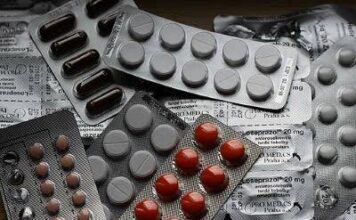In the face of severe economic challenges encountered by Nigerians, the Federal Government may have initiated a strategy to halt the payment of customs duties on essential food items, medications, and other vital products for an initial half-year period to combat inflation, according to Wakadaily reports.
This move is outlined in an impending Executive Order, dubbed “Inflation Reduction and Price Stability (Fiscal Policy Measures) Order 2024,” expected to be issued by the President.
While the document reviewed by our correspondent lacked the President’s signature, it was slated for signing in April.
The directive also entails proposals to exempt charges on fertilizers, poultry feed, flour, and grains.
Additionally, it was mentioned that the executive order will instruct the Ministry of Finance and the Central Bank of Nigeria to create a scheme for providing low-interest loans to the agricultural, pharmaceutical, and manufacturing industries.
“The import duty and other tariffs are to be suspended on the following for six months: Staple food items; Raw materials and other direct inputs used for manufacturing: Inputs for agriculture production including fertilisers, seedlings, and chemicals, Pharmaceutical products, Poultry feeds, flour and grains,” the document read in part.
The president is expected to temporarily waive the Value-Added Tax (VAT) on various essential goods and services for the remainder of the year, including diesel fuel, basic food staples like noodles and pasta, raw materials for food production, electricity, public transportation, agricultural inputs and produce, and pharmaceutical products.
“Suspension of Specific Taxes and Levies: For six months, the order suspends various taxes and levies, such as road haulage tax and other transportation-related charges; fees on bicycles, trucks, canoes, wheelbarrows, and carts; business premises registration; taxes and levies on shops, kiosks, and markets; animal trade and produce sales tax.”
The government is exploring options to import paddy rice and maize, as outlined in the Accelerated Stabilisation and Advancement Plan (ASAP) report, to combat rising food inflation.
The report suggests an executive order allowing millers to import paddy rice, with suspended import duties and VAT on related items, and a fixed exchange rate.
However, this proposal contradicts President Tinubu’s earlier stance on achieving food self-sufficiency and not relying on imports, as expressed during an event with state APC chairpersons.
“Fertilisers are being supplied to farmers as we speak. Agriculture and economic diversification provide the answers to our problems.
“We will not continue to import food. We know how to turn lack into abundance, and the world will watch us do it again,’’ he stated.
A severe food crisis is imminent in Nigeria, posing a significant threat to the nation’s stability. Food prices have skyrocketed, with inflation reaching 40.5%, and rice, a staple food, has seen a staggering 169% price increase in the past year, reaching nearly N90,000 per bag.
This has put immense pressure on households, worsening the country’s economic vulnerability. By August, approximately 31 million Nigerians may face severe food shortages.
To address this, President Tinubu plans to issue an executive order stopping foreign currency tax payments and mandating government agencies to prioritize locally made goods and services, aiming to reduce pressure on the naira and promote economic self-reliance.
The order emphasizes supporting Nigerian-made products and services wherever possible.
“Payments of taxes and levies in foreign currency shall be discontinued to enable the payers to pay in Naira while non-critical spending plans by any MDA involving foreign exchange cost shall be put on hold. States and local governments are encouraged to support these tax suspensions to ensure broad-based relief for businesses and consumers.”
The CEO of the Centre for the Promotion of Private Enterprise, Dr. Muda Yusuf, praised the stabilization plan, saying it will tackle pressing economic concerns affecting real sector investors when implemented.
Muda, speaking in an interview mentioned, “The proposed Accelerated Stabilisation and Advancement Plan is a laudable proposition coming from the Finance Minister. It addresses many of the burning economic issues bothering real sector investors.
“The plan contains robust and comprehensive fiscal policy measures that stakeholders in the real economy had clamoured for over the past year. It addresses the concerns of investors on high interest rates, high cost of cargo clearance at the ports, and high import duty regimes.
“The relaxation of import duties on critical raw materials for manufacturers would calm the raging inflationary pressures in the economy, especially food inflation. The fiscal measures reflect the responsiveness of the administration to the concerns of investors in the real economy. We urge for expeditious implementation of the plan, once approved by the president.”
The Federal Government is considering borrowing an additional N7.24 trillion in 2024 to fund its economic intervention plan, as revealed by Finance Minister Wale Edun during the presentation of the ASAP plan.
This borrowing is in addition to the already planned N9.18 trillion to fund the deficit, bringing the total borrowing for 2024 to N16.42 trillion.
The government expects a revenue shortfall and acknowledges that relying solely on borrowing to fund the intervention would negatively impact debt metrics, emphasizing the need for a balanced approach to funding its economic stimulus plans.
